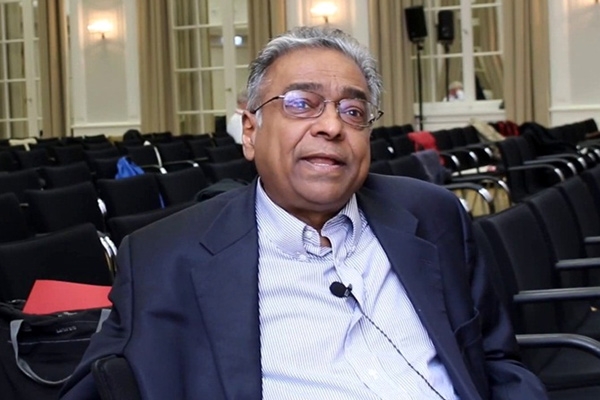Indian-American Prof. to be Conferred with Esteemed Einstein Prize
October 16, 2018 06:30
(Image source from: Free Press Journal)
An Indian American Professor Abhay Ashtekar is set to receive the prestigious Einstein Prize bestowed by the American Physical Society (APS).
Ashtekar is a professor of physics, Evan Pugh Professor, Holder, Eberly Chair, and Institute for Gravitation's director and the Cosmos at the Pennsylvania State University.
The prize for 2018, which carries an award of $10,000, is scheduled to be announced on October 23.
Its citation reads: "For numerous and seminal contributions to general relativity, including the theory of black holes, canonical quantum gravity, and quantum cosmology."
"The prize is special because is it the highest honor bestowed by APS in the broad area of gravitational science. The first Einstein prize was awarded jointly to Peter Bergmann and John Wheeler, who introduced general relativity to American universities by creating research groups. Perhaps because the first award often sets the tone, subsequent prizes have come to recognize 'lifetime achievements'. So the news was deeply satisfying," Ashtekar told IANS in an email interview.
Ashtekar's passion for physical sciences started while he was in high school in India. "At first I knew only Marathi literature - that is my mother tongue, and was the medium of instruction until I was 11. Then was exposed to Hindi and English literature and realized how deeply literature is tied to specific cultures. What is considered great in one language or context could well be mediocre in another. At the same time, I learned Newton's laws and universality of gravity - what makes the apple fall on earth also makes the planets go around the sun. This was stunning by itself," he said.
In 1974, he received his Ph.D. from the University of Chicago. He held authoritative positions in Canada, France, and India. His biography on the National Academy of Sciences, to which he was appointed a member in 2016, reports him as someone "best known for initiating the Loop Quantum Gravity programme by introducing new variables to simplify Einstein's equations, for analyzing the very early universe using Loop Quantum Cosmology, and for his contributions to the study of the asymptotic structure of space-time and gravitational waves in full non-linear general relativity".
After such an extended career in a diversity of physics fields, he said science is currently in the "truly golden age for gravity".
"Until about the mid-1960s, general relativity had remained isolated from mainstream science - a pristine and beautiful theory, to be admired from a distance.
"The paradigm has shifted completely and relativistic gravity has moved to centre stage of physics and astronomy. Through the big bang, black holes and gravitational waves, we realized that the universe is not a calm, peaceful place that the astronomers believed it to be in much of the 20th century," he pointed out.
Asked whether physicists in India are producing world-class research, Ashtekar said: "There are extremely talented physicists in India who are making first-rate contributions to pure physics in areas I have first-hand acquaintance with. I am particularly pleased by the 'LIGO-India' project that is now placing India firmly in the front ranks of international efforts. The Inter-University Centre for Astronomy and Astrophysics in Pune, in particular, will play an important role in the major discoveries that will be made with the international network of gravitational wave observatories between 5 and 10 years from now. In this area, India is ahead of China, for example."
By Sowmya Sangam







